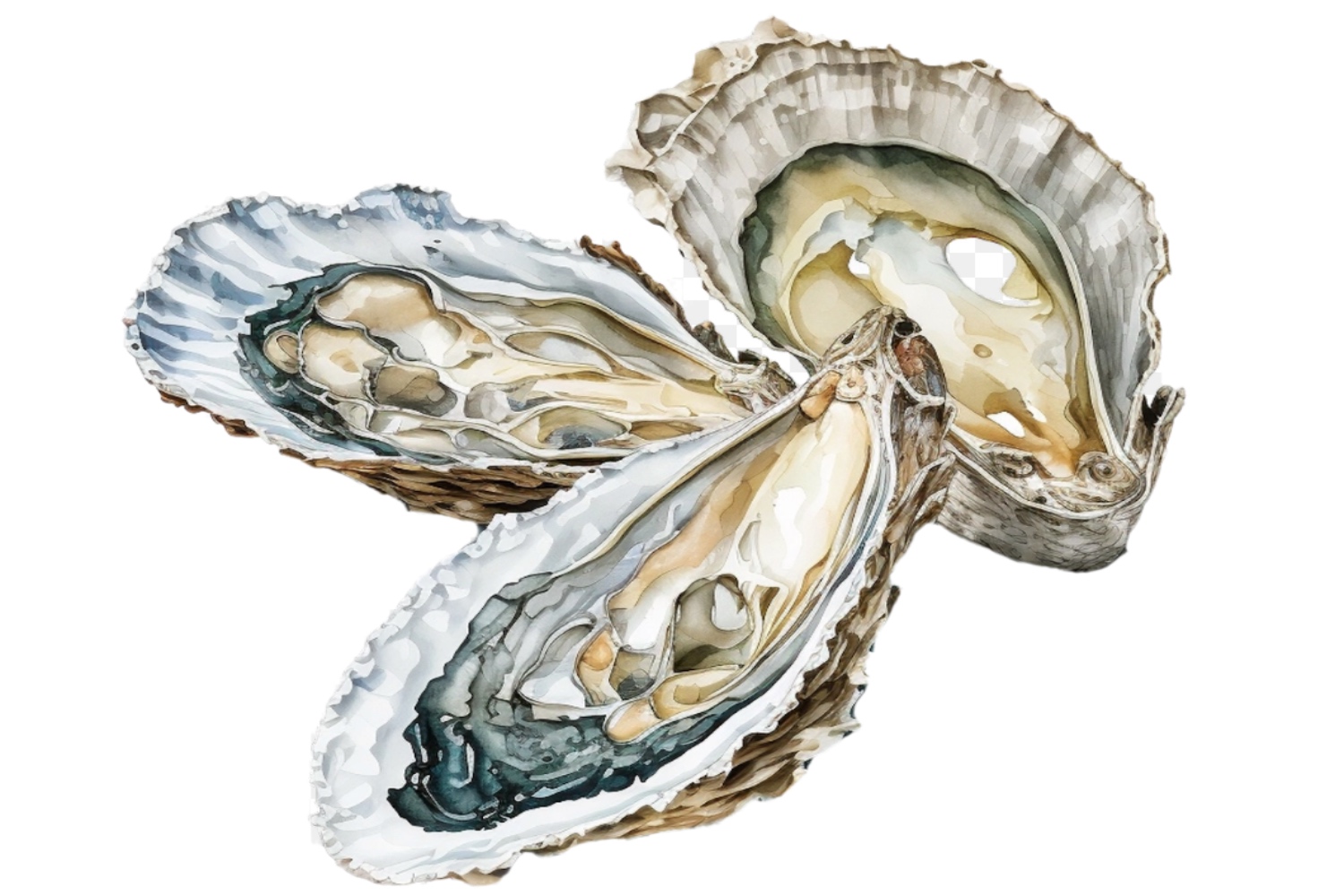What Is Savoring? Boost Your Mood in Minutes
Let’s define savoring and find out how it can boost our moods in minutes
by Alicia Butler, April 27, 2022

This post may contain affiliate links, so if you buy something after clicking on a link, I might (fingers crossed!) just get a little commission. Good news: I only recommend products that I love! Which means you can feel good about all of my recs.
What is savoring? Savoring is a well-being technique that can improve your mental health and boost your mood in minutes.
The definition of savoring is: “to enjoy food or an experience slowly, in order to appreciate it as much as possible.”
We’re used to thinking of savoring as something to practice with food or drink. But we can savor smells, sounds — or anything we experience with our senses, really.
We can even savor negative experiences, too.
Let’s define savoring and discover how this mindfulness technique can boost our mood in minutes!
What Is Savoring?
Let’s define savoring.
What is savoring anyway? Savoring is the act of drinking in and fully enjoying an experience. It’s about capitalizing on the simple experience of pleasure.
It’s running your fingers over a pretty mosaic and appreciating the smooth surface of the tile, the rough grout, and the sharp ceramic edges. It’s eating a bowl of pasta slowly, inhaling the aroma of acidic tomatoes, good olive oil, and salty cheese. It’s allowing yourself a full belly laugh when something is so funny it makes you shoot wine out of your nose.
What Isn’t Savoring?
What isn’t savoring? Only focusing on positive feelings, emotions, and events.
As humans, our brains are wired to pay more attention to negative experiences than positive ones.
From an evolutionary standpoint, our ancestors needed fear-based memories seared into their brains so they could avoid future life-threatening situations for long enough to procreate (thanks… I think?).
Stress hormones, like adrenaline and cortisol, were released to help them fight or flee from danger (or in my case, freeze).
We’ve inherited these same chemical reactions, even though we don’t need to flee or physically fight a negative performance review or the car that cut us off during rush hour.
This is partially why it’s so easy to get stuck on stuff we probably won’t think twice about again in six months.
But bottling emotions can actually make you more aggressive. And avoiding feelings without truly feeling them can actually make them stronger.
Savoring isn’t just about only focusing on either. When we give as much space to negative events in our lives as we do positive moments, we can more easily honor and let go of annoyances, grievances — and even pain.
What is savoring? Savoring is the act of drinking in and fully enjoying an experience. It’s about capitalizing on the simple experience of pleasure (or an unpleasant experience).
Savoring Positive Vs Negative Feelings
What is savoring when it comes to negative emotions?
When we think of savoring, we often don’t consider drinking in negative emotions as much as we do the Good Things in life. Yet, when we don’t pay equal attention to the blah, ho-hum, and ugh, we end up spending a huge part of our lives checked-out instead of tuned-in.
And when we’re checked out, we can’t actually experience our experiences. Who’s to know if we actually hated that movie, don’t love Brussels sprouts, or are bored out of our minds by baseball if we aren’t present during the experience?
Who’s to say that we wouldn’t enjoy even some of those experiences (the best friend character that provides comic relief, the bacon dotting the Brussels sprouts, or doing the wave) if we’re dead-set on avoiding the entire thing?
When we only make space for positive things in life, we’re missing out on a huge spectrum of emotions.
Related Stories
How Does Savoring Work?
What is savoring’s arch-nemesis? Hedonic adaptation (or Heddie, as I like to call her).
It’s human nature to lose interest in things. Our brains are always trying to ‘level up’ and want more.
Are ancestors were always on high alert for what could go wrong. Their brains were hardwired to seek out possible threats (roaming tigers, locusts, soggy grilled cheese, that sort of thing).
Since we inherited those brains (or at least the updated version of them), it makes sense that we’re all wandering around expecting bad stuff. It’s part of our survival mechanism.
Our brains are also really bad at predicting what will make us happy.
We all have social comparison biases that pop up whenever we see our friends having a great time on social media (chilling on the beach, having a barbecue, driving a flippin’ Maserati). What our brains don’t see is all the negative stuff that goes into that photo, like sand stuck in swimsuits, bees, and the crazy-high monthly car payments.
We just start to want all that stuff. But the problem isn’t the stuff — it’s how we react to the stuff once we’ve got it. More often than not, we don’t appreciate the stuff we already have. Once we buy that new car, our brains start to say, “Hey, this new Porsche is great and all, but has anyone noticed how sh*tty the rest of our stuff is? Ammarite?!”
But that’s just how Heddie rolls.
The best way to combat hedonic adaptation and get off the endorphin rush rollercoaster is to savor the stuff you’ve got.
Types of Savoring
What is savoring specifically? There are four ‘official’ types of savoring, including basking, luxuriating, marveling, and giving thanks.
Honestly, I don’t get too wrapped up in the types of savoring. Mostly because I don’t really care what it’s called — as long as it works for me. But if you want to get super meta and cerebral about the experience of savoring, there are plenty of savoring resources to break things down even further for you.
The act of savoring can actually allow us to ‘stop time’ or at the very least elongate it.
What is savoring? Benefits of Savoring
Savoring offers a huge list of benefits that can increase happiness and decrease anxiety and stress. When we switch from searching for possible danger to being okay with what is, we can slow down time, boost feel-good chemicals, and make others around us happier, too.
Elongates/Stops Time
According to time management researcher and writer Laura Vanderkam, author of 168 Hours: You Have More Time Than You Think, the act of savoring can actually allow us to ‘stop time’ or at the very least elongate it.
Our brains naturally compress information. For example, you may not remember every aspect of your daily commute (especially if you’re in the habit of ‘checking out’). You’ll probably remember emotionally charged moments (such as a stranger standing on your foot on the subway or that jerk that cut you off and gave you the finger).
You may even remember an overall sense of the experience (boredom, annoyance, etc.; you may even remember the joy you feel when you walk through your front door or when your butt clears your office chair).
But you probably don’t remember (or notice for that matter) everything.
Your brain may even compress several similar activities together — meaning you may simply draw to mind one commute experience when thinking about all commutes. (When you envision your daily commute, you may simply just remember a crowded, anxious feeling.)
This gives the illusion of time passing extremely fast. When we aren’t “present”, we don’t remember the whole experience — only a sizzle reel of emotionally charged highlights.
What is savoring? A way to slow or elongate time.
When you savor, you’re more likely to remember more of an experience, offering the illusion that the experience itself was longer. Kind of like when time seems to move at a glacial pace when you’re constantly checking the clock.
When you savor positive events, you’re more likely to remember more of it. And while time is essentially an illusion, you’ll be able to use that illusion to your advantage to elongate the moments you don’t want to end (like vacations, ice cream, and Mark Ruffalo movies).
Boosts Your Feel-Good Chemicals
What is savoring’s main job?
Savoring can actually boost your body’s feel-good chemicals. You know, the ones we get a hit off of when our team wins the championship or when we fall in love or eat a carb-heavy meal?
According to University of Wisconsin-Madison neuroscientist, Dr. Richard J. Davidson:
“Individuals who are able to savor positive emotions have lasting activation in the ventral striatum. The longer the activation lasts, the greater his or her feelings of well-being.”
Offers More Bang for Your Buck
One of the reasons I love savoring is because it’s easy to do, you can do it anywhere, and you don’t need to buy any special accouterment to reap its benefits.
If you’re asking yourself, what is savoring? Savoring is all about soaking in the good stuff — wherever, whenever. It’s an instant boost of happiness that don’t cost a thang.
Reminiscing about a vacation you took years ago can offer almost as much joy as the experience itself did. In fact, some researchers believe that planning a vacation can be even more enjoyable than the vacation itself.
Spreads the Love
What is savoring without others?
Savoring can be done solo — but you’ll really suck all the juices out of its benefits if you share your savoring with others.
Send your friends and family members photos of the stuff you savor throughout the day (yes, this may require you to be 100% that person taking photos of your food in a restaurant — but it’s totally worth it). Or, just relay what you’ve savored throughout the day.
There’s so much negativity floating around, and people love hearing about the good stuff, too. When was the last time you called a friend to talk about the mouth-watering tiramisu you ate at your favorite restaurant? When was the last time you called a friend for a b*tch sesh? (No judgment, we all love to trash talk; it’s just that negativity is a real energy suck while gratitude can actually replenish your energy.)
Not only will you get the added benefit of re-enjoying your own luscious moments, but your friends will also reap the benefits by proxy.
Provides Happiness Data & Feedback
When we are truly 100% present, our brains get the benefit of actually experiencing stuff. When we’re tuned into what’s actually happening, we can collect information about our experiences — including what we like and don’t like about them.
What is savoring? It provides happiness data and feedback.
I recently made a commitment to be 100% mindful when I’m eating. And you know what I discovered? I don’t like Hostess cakes. I’d been craving them for weeks and when I actually paid attention to the experience, I realized that they’re actually too sweet for me. Now I know I don’t like them, so I can spend my time and money eating one of the other millions of snack cakes on the market.
If I hadn’t savored that little cake, who knows how long I’d be eating sweets that I don’t actually enjoy? What a waste.
Saves Money
What is savoring when it comes to money?
When you savor everything, you start to enjoy everything — especially The Little Things.
This means you can derive similar pleasure from enjoying the sound of wind chimes that you would by flying first-class or sitting next to Snoop Dogg at a Lakers game.
(Okay, I’m not going to sh*t you on that one; celebrities and first-class totally trump wind chimes overall but you can train your brain to love things more when your brain notices them.)
When you set an intention that states, I’m going to savor this moment for what it is and not how I wish it were, you’re opening your mind to possibilities that once donned KEEP OUT handwritten signs.
“Individuals who are able to savor positive emotions have lasting activation in the ventral striatum. The longer the activation lasts, the greater his or her feelings of well-being.”
– Dr. Richard J. Davidson
Ways to Savor More: Boost Your Mood in Minutes
What is savoring, and how do you do it? If you want to boost your mood by savoring, you’ll want to make a savoring strategy. As with all mindful techniques, savoring works best when you make a plan to do it.
Set a Timer
What is savoring (or any mindful practice really) if you don’t remember to do it? Knowing is half the battle.
There are several ways to remind yourself to savor. One is to set a reminder on your phone. When your phone buzzes, stop and savor as much stuff as you can. If you’re at work or can’t take a moment of solitude, you can simply try to savor and enjoy a select number of things (I like to keep things simple by following the rule of threes).
If your reminder goes off when you’re at home or by yourself, you can always set a timer and do a savor meditation for a select amount of time (say, five minutes).
Stop and Enjoy the Moment
What is a savoring practice you can do anytime, anywhere?
Drink in everything you can about a moment. Right now, my neighbors are doing laundry, and the sound of the dryer softly churning clothes is pretty relaxing.
I moved my favorite plant from its usual spot on a small stool to the more prominent and noticeable spot of the TV stand, and I love the way its little green arms stretch out in every direction and how pretty the sage green of the plant looks against the white and gray pot.
Also, I truly — madly, deeply — love my living room rug. I bought it for only $30 at HomeGoods, and I often strike out when buying rugs because they look so much better in the store than they do in my home.
I’m also noticing that I left a plastic baggy on my couch last night after I had a snack and the sight of garbage on my furniture makes me feel a little gross.
Practice Mindfulness
What is savoring?
Savoring is essentially a mindfulness practice. If you find it hard to savor something, start small. One of my favorite meditations for people who hate meditating is music meditation.
Play your favorite song on repeat for a set time (say, 10 minutes). Lay down, close your eyes, and notice everything you can about the song. The words, the rhythm, the tempo, the chorus, the bridge.
How does the song make you feel? Is it exciting, sad, fast, sensual? Does it remind you of another time in your life?
Drink In Everything
Remember that savoring doesn’t necessarily mean ‘enjoying’, it simply means drinking everything in — just as it is. Notice all the weird, beautiful, funny, things that are happening in the present moment without judgment.
This means that you can savor ‘The Bad’ as well as the good. Sometimes I try to ‘savor’ pain in the same way I would pleasure. I find that when I have a headache, wishing the pain away actually makes the symptoms worse.
Instead, I try to notice the pain without judgment. Where is the pain most intense? Is the pain consistent or does it ebb and flow? Does it make you sad? Frustrated? Angry? Trapped?
As I’m writing this, I’m actually in kind of an awful headspace. I’ve had a crummy week. I feel like nobody likes me. And the more I try to “make myself feel better” the worse I feel. So right now, I’m savoring my pity party for one.
Share Your Good Vibes
What is savoring if you don’t share it?
Don’t keep your savoring joy all to yourself! Share your good vibes with friends, family, and followers.
Send photos of little treasures you find by the side of the road, text your friends when someone in the drive-through pays for your coffee, and ask your friends to share their highs and lows at the end of each day.
You’ll get more joy from your savoring (research shows that you get a similar boost when you share the love as when you experience the original moment), and your loved ones will enjoy a watered-down proxy boost from your moment.
Turn Your Phone On
We’re constantly told to put our screens down — and for good reason, too. Scrolling through the internet is actually making us more anxious, lonely, and depressed.
But what if we could use our phones for good and with intention instead of for mindless scrolling?
When you savor something, take a photo of it (or, write down your feelings and thoughts about it).
This makes sharing the love a little easier and also allows you to revisit your favorite savoring moments, too.
Turn Your Phone Off
Okay, I know. I just told you to turn your phone on! (I’m all about mixed messages.)
Your phone can be used to enhance savoring, but it’s also very easy to return to your phone for the wrong reasons. Your phone should be used to help you absorb the real world — not shut it out.
If you’re finding it too difficult to savor while your devices are on, just turn them off. If you need help savoring sans electronics, try writing your thoughts on good ole paper and/or drawing the objects of your savoring.
Many researchers cite a spike in loneliness and depression that corresponds with the invention of the smartphone. If you want to boost your mood, take a break from your screens.
Celebrate Even Small Wins
So often we look forward to big wins (getting accepted into our first-choice college, a big promotion, or Parties on Boats) that we totally forget to celebrate our smaller (and arguably more important) milestones.
Finishing a paper by its due date, blogging once a week (yes, even this website that brings me so much joy and fulfillment is a small win when it comes to crushing my goals), and moving my body in new, fun, and challenging ways (otherwise known as exercise) all deserve small celebrations, too.
We can celebrate these smaller milestones by really taking the time to soak in and enjoy them.
Start a Gratitude Practice
What is savoring versus gratitude?
Savoring isn’t the same as gratitude — though the two are similar. When we express gratitude for something (especially in great detail), we are in essence savoring it.
If your gratitude practice needs a little variety or if you need to breathe a little bit of life into it, I recommend my gratitude journal, The Little Things. Find new ways to appreciate the things in your life that you may not even notice (thanks again, Heddie).
Appreciate Impermanence
Nothing lasts forever in this life. It’s just the honest truth.
Someday I’ll probably move and decide to sell all the beautiful furniture that I spent hours searching for. My pretty plant will at some point die (probably sooner rather than later since I’m really bad at watering plants) and I’ll go buy a new one.
My cup of coffee will be gone in an hour or so (actually, it’s already cold), and I’ll move on to savoring a can of sparkling water or a cup of tea or something.
While the impermanence of life can be a little depressing sometimes, it can remind us that we don’t have all the time in the world to enjoy the things we love.
What is savoring to you? How do you remember to take time to savor The Little Things in your life? Do you have any hacks to boost your mood? Let me know in the comments below!



Trackbacks/Pingbacks